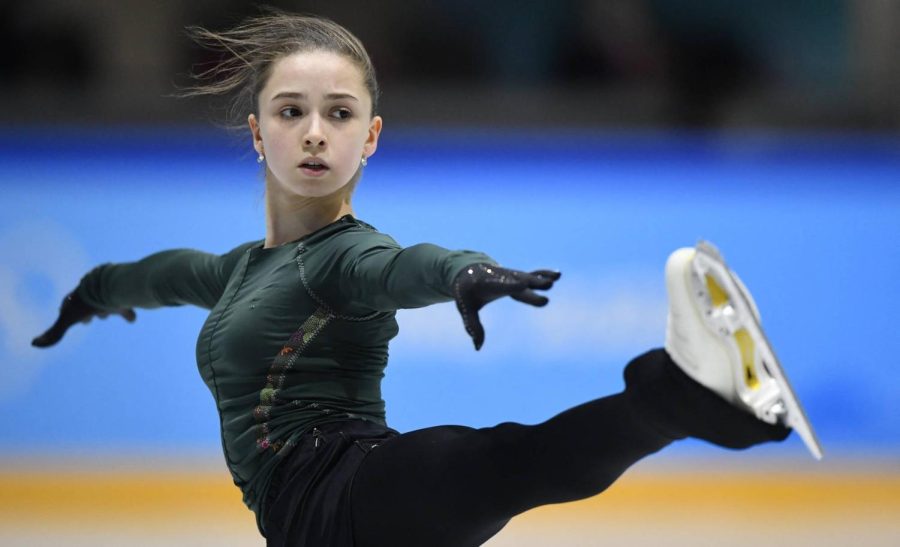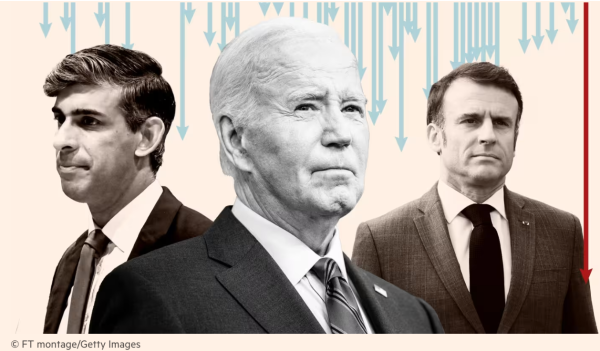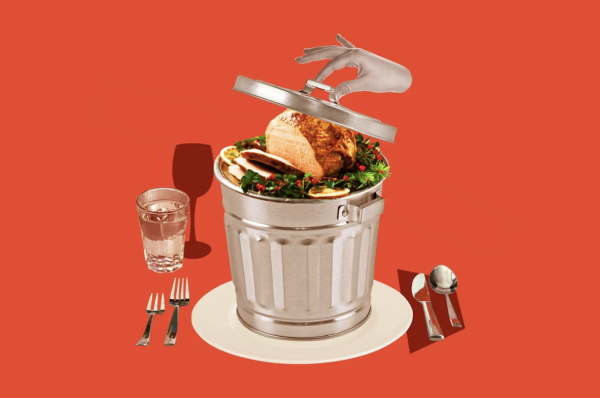Kamila Valieva Incites Doping Scandal
Photo courtesy The Japan Times
Kamila Valieva at the Tokyo Olympics
Russian figure skater Kamila Valieva kicked off her Olympic career at the 2022 Beijing Winter Olympics by making history. During her free skate team event, she became the first female at the Olympics to land a quad – requiring jumping, completing four rotations in the air, and landing – at the astonishingly young age of 15. With her captivating performance and record-breaking scores, in addition to securing a gold medal for Russia in team figure skating, Valieva was highly favored to prevail in the singles event as well.
It came as a shock and disappointment that, when doping test results were received dating back to December 2021, Kamila tested positive for three drugs, one of which is banned by the World Anti-Doping Agency (WADA). According to the National Institute of Health (NIH), trimetazidine, while generally used to treat patients with angina, improves blood flow to the heart. In the context of Valieva, the use of trimetazidine would allow her to train harder and recover quicker, giving her a strong advantage over her competitors. While not banned, she also was using L-carnitine and hypoxen, which convert fats into energy in the heart and skeletal muscle regions and provide extra oxygen to blood and tissue, respectively.
On February 8, 2022, Olympics officials determined that Kamila would be permitted to continue competing in the games, but would not receive any more medals. Additionally, if she were to place in any of her events, her fellow athletes would not be accepting medals either.
This verdict enraged many spectators and competitors alike, with the general attitude being that it is unfair that innocent athletes must be penalized for something fully out of their control. Others compare the treatment of Valieva’s case to how American sprinter Sha’Carri Richardson was treated merely a year ago during the Summer Olympics.
Sha’Carri Richardson, a black, American woman, tested positive for THC, the intoxicant found in marijuana, last year prior to the 2021 Summer Olympics. Unlike Kamila, who was allowed to compete, Richardson was forced out of the games entirely. This brings to light potential racism within the Olympic committee, as THC, while a banned substance, is not performance-enhancing, compared to trimetazidine, which is. Considering that the Olympics are one of the few international events where, in theory, people from a multitude of different cultures can come together and celebrate, the idea of racism influencing key decisions in them is extremely disturbing.
When the day of the singles free skate event came, Kamila excelled in the short program, coming in first. However, in her long program she was penalized for seven of her ten jumps, four of which were for falls. These faults pushed her from gold in the short program to fourth overall. This is highly uncharacteristic of the skater, leading to theories on what caused such a poor performance from her. The two prevailing hypotheses are that the stress of the doping scandal was overwhelming and bled into her skating, or that she was pushed by her coaches to fail so that her Russian peers could succeed.
Walking into and throughout the duration of her piece, Valieva was described as being visibly nervous. While that would be typical of most teenagers competing on the global stage, Kamila is known to be stony-faced and confident going into competitions. This has led people to wonder if the burden of her doping was too much to put on her shoulders alone; considering the combination of drugs observed in her system and the fact that Valieva is a minor, it is highly suspected that her coach, Eteri Tutberidze, or some other authority figure encouraged or even mandated the substance use. Governmental pressure is also not out of the question – due to a state-sponsored doping scheme exposed in the 2014 Sochi Winter Games, Russia has been forced to compete in the Olympics as the Russian Olympic Committee (ROC).
The other common rationale is that Kamila was told to fall intentionally. Seeing as if she placed there would be no awards, it would make sense for Valieva’s coaches to tell her to step aside so that her two peers, Anna Shcherbakova and Alexandra Trusova, could medal. Sure enough, Shcherbakova and Trusova won gold and silver medals. This explains her peculiarly high number of mistakes in the long program. This being said, regardless of the reasoning or fault behind it, Kamila Valieva’s story at the 2022 Olympics is heartbreaking.
Sources:
- https://theconversation.com/russian-olympic-figure-skater-kamila-valievas-drug-test-the-substances-and-their-potential-performance-effects-177496
- https://www.npr.org/2022/02/15/1080694770/shacarri-richardson-kamila-valieva-doping
- https://www.nytimes.com/2022/02/14/sports/olympics/kamila-valieva-ruling.html
- https://www.cnn.com/2022/02/07/sport/kamila-valieva-winter-olympics-figure-skating-quad-spt-intl/index.html
- https://www.cnn.com/2022/02/17/sport/kamila-valieva-skating-controversy-matters-spt-intl/index.html
- https://pubmed.ncbi.nlm.nih.gov/10439934/
- https://www.nytimes.com/interactive/2022/02/17/sports/olympics/shcherbakova-gold-valieva-fall-figure-skating.html

Grade: 12
Years on Staff: 3
Why are you writing for the Flintridge Press?
There are very few opportunities to write outside of a classroom setting,...











